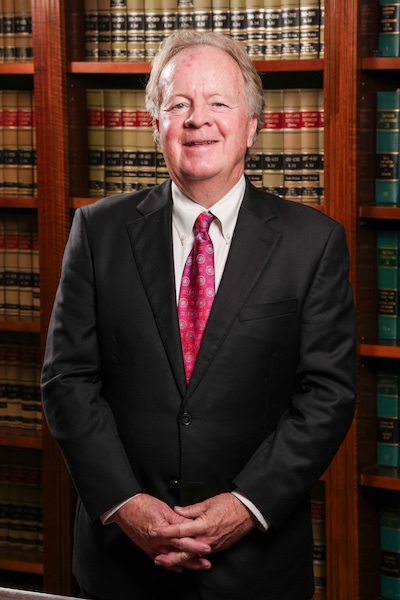As a thirty nine year veteran of the Maryland personal injury wars, I have seen the insurance industry's successful campaign to erode the rights of victims of medical malpractice, car and truck accidents and other personal injury, achieve fruition. The tactics have been many and the net effect has been to radically reduce case values and delay payment.
Now the coronavirus has introduced a new weapon for the insurance industry, infinite delay! Yes, the pandemic isn't the creation of insurance companies but it has been highly beneficial to further delaying the resolution of cases, leaving injury victims and their attorneys drumming their fingers on the courthouse door seeking trial dates in cases that have been grossly underevaluated by insurance companies.
The problem of course is that every case for a multi-month period has been postponed including criminal trials and other matters of higher priority than car and truck crash cases. This means that all injury cases have very little prospect of going before a jury for potentially years.
The insurers are already tuned into the fact that many injury victims can't wait years for fair compensation and are routinely forced to accept inadequate offers rather than wait for their day in court. The covid 19 has bought them vastly more delay and with the exception of a few carriers (Geico, USAA, Amica and Erie in our experience) the offers for settlement are just as unacceptable as ever.
The problem is that the threat "see you in court" has no resonance anymore. In any given case, as an experienced attorney, I can say with fairly strong confidence that an offer is half what a jury verdict is likely to be but that is meaningless when my client may wait three years to see their case tried.
So what do we do to fix this in Maryland?
1), Expand Maryland District Court Jurisdiction to $100,000.00.
District Court presently has a jurisdictional limit of $30,000.00 and cases are tried before judges only. District Court is truly where the trial action takes place regularly with many times more personal injury cases going to trial than in Circuit Court. The problem is that it only addresses smaller cases and thus a huge swath of medium size cases are left to compete with larger injury and malpractice cases for dwindling jury trial dates.
So, if you expand the District Court jurisdiction to $100,000.00 a sea of medium size cases could be promptly and more inexpensively tried, benefitting all sides. District Court trial dates are much sooner than those in Circuit Court.
2). Expand CJP 10-104 to permit admission of medical records and bills to the above cases thus saving litigants the cost and time of bringing doctors into court or videotape depositions. !0-104 has been a boon to injured parties and insurance companies alike and has expedited justice for all. District Court judges have been steeped in personal injury medical records for years and are fully capable of fairly evaluating medium size cases as well.
3). Provide genuine scheduling orders for District Court including the option to conduct depositions in cases above a certain value range. The fact is that District Court trials are like flying blind, defense counsel routinely provide grossly unresponsive answers at the last minute possible, thereby denuding the interrogatories of any substantive value.
I would gladly forego interrogatories for the opportunity to depose the defendant and receive their genuine description of how and why the accident occurred rather than the defense attorney processed non-answers that I receive in literally every District Court case.
4). Yeah scheduling orders. Too many lawyers on both sides take too many cases or in house counsel's case, are assigned too many cases, and have insufficient time to answer discovery or in some cases, even phone calls from opposing counsel. If scheduling orders are necessary in those above $30,000.00 Circuit Court cases, they can certainly exist in District Court.
If you don't conduct your deposition in accordance with the new District Court scheduling order tough. District Court depositions are not guaranteed any more than Circuit Court and failure to adhere to the scheduling order has repercussions.
This may result in certain defense lawyers who are simultaneously ubiquitous and nowhere, taking fewer cases but that would be much fairer to those who litigate with them. There are many capable lawyers who are, shall we say, underutilized and spreading out the cases so the basic work of discovery can be accomplished would be more likely to result in both settlements and efficient trials.
5). Have settlement conferences in these cases. There is presently no mechanism for settling cases in District Court other than the non-existent dialogue between plaitiff's lawyer and adjuster during litigation. District Court defense attorneys are swamped and simply don't have the time to objectively look at case values.
Having compulsory attendance settlement conferences could result in lots of settlements by bringing both counsel, the adjusters and clients together with an experienced judge and in those cases that don't settle, many conferences would alleviate absurd liability defenses and expedite the actual trial.
The amount of time that the court, parties and lawyers could save would be great and permit judges to devote their energies to actual controversies.
6). Tele-conferencing on Zoom and other modalities. Yes this is starting to happen and it is a great way to reduce covid exposure but when the virus is in the past, tele-conferencing should stay as it saves commuting time, fuel, parking costs and disease exposure. What's not to like?
For more contact me at (301) 317-1001 or [email protected]

